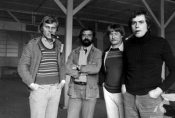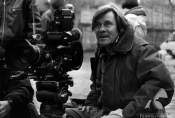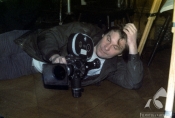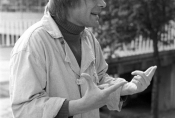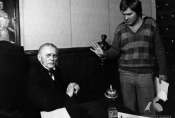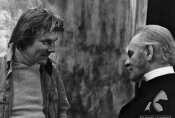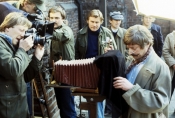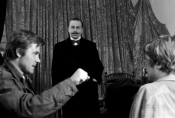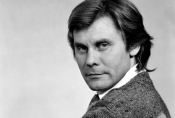Filip Bajon
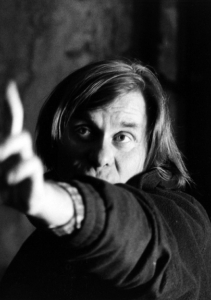
Film, theatre and television director, screenwriter, producer, actor, writer, teacher. He was born on August 25, 1947 in Poznan. A graduate of the law faculty at the Adam Mickiewicz University in Poznan (1970) and the Directing Department of the State Higher School of Film, Television and Theatre in Łódź (1974). Since 1970, he has been writing short stories printed in literary journals. In 1971, he published his first novel Polar Bears Do Not Like Sunny Weather/Białe niedźwiedzie nie lubią słonecznej pogody, for which he received the William Mach Award for best prose debut (1972). He also published a collection of short stories Come with Me to the Top/Proszę za mną na górę (1972), novels – Series Entitled/Serial pod tytułem (1974), Listening/Podsłuch (1994) and Shadow of the Day/Cień po dniu (2006), as well as a number of screenplays.
As a director, he made his debut with a short experimental film Videocasette/Videokaseta (1976), in the same year he made the first feature television movie The Return/Powrót, three years later – the first full-length feature film Aria for an Athlete/Aria dla atlety (1979), which won awards for best debut in Gdansk and San Remo; it is the dramatic story of Władysław Góralewicz – wrestler, art collector and opera aficionado (the character was based on Zbyszko Cyganiewicz, world champion in wrestling). In Inspection of the Crime Scene 1901/Wizja lokalna 1901 (1980, Grand Prix of the Jury in Gdańsk), he reminds us about the protests of the Września children against Germanisation. His next film, Daimler-Benz Limousine/Limuzyna Daimler-Benz (1981, award in Figueira da Foz) is set in 1939, on the eve of the German invasion of Poland. Bajon often sets the stories he tells between two eras – something ends, something begins; this is apparent not only in the above-mentioned films, but also his later works: Magnate/Magnat (1986, Special Jury Award in Gdynia) – the impressive saga of a Silesian aristocratic family from the beginning of the century to the rise of fascism; Ball at the Koluszki Station/Bal na dworcu w Koluszkach (1989) – a grotesque piece set at the turn of 1978-79, in the winter, “when even socialism froze”; and It’s Better To Be Beautiful And Rich/Lepiej być piekną i kochaną (1993) – a comedy set during the political transformation. In a sense, we can also find elements of Bajon’s penchant for the theme of “breakthrough” in his Poznan '56 (1996, Special Award in Gdynia) – the story of the workers' protest told from the point of view of children, or his adaptation of Early Spring/Przedwiośnie (2001) by Stefan Żeromski. The director is not trying to make a paradocumentary, but rather creates his own world where past events or actual reality are merely a basis for artistic creation.
In 1991, he made The Repetition from Conrad/Powtórka z Conrada – his first documentary. Later, he made Seeking Ryszard Kapuściński/Poszukiwany Ryszard Kapuściński (1998), Portrait of a Male in an Interior/Portret męski we wnętrzu (1999), and I'll Tell You When I Get Back/Opowiem ci, jak wrócę (2007), which he devoted to the great writer and ...sailing. His most interesting theatrical productions include: The Life of Worms by Per Olov Enquist staged at Scena na Piętrze Theatre in Poznań, Anton Chekhov's Platonov at the Stary Theatre in Krakow and The Madness of King George by Alan Bennett at the Dramatyczny Theatre in Warsaw. In the 1990s, he was the head of the film Film Studio “Dom”. He is also a lecturer at the Department of Radio and Television at the University of Silesia in Katowice and Łódź Film School (since 2008 – Dean of the Directing Department). He is a Member of the Board of the Polish Filmmakers Association.
He was awarded the Knight’s Cross of the Order of Polonia Restituta (2002); he was also awarded the Golden Boot (Złoty Glan) by the Charlie Cinema in Łódź given to “independent artists who stubbornly defy fashions and trends prevailing in popular culture”, announced during the 16th Forum of European Cinema Cinergia (2011).
Jerzy Armata
Selected filmography
-
1979
ARIA FOR AN ATHLETE
